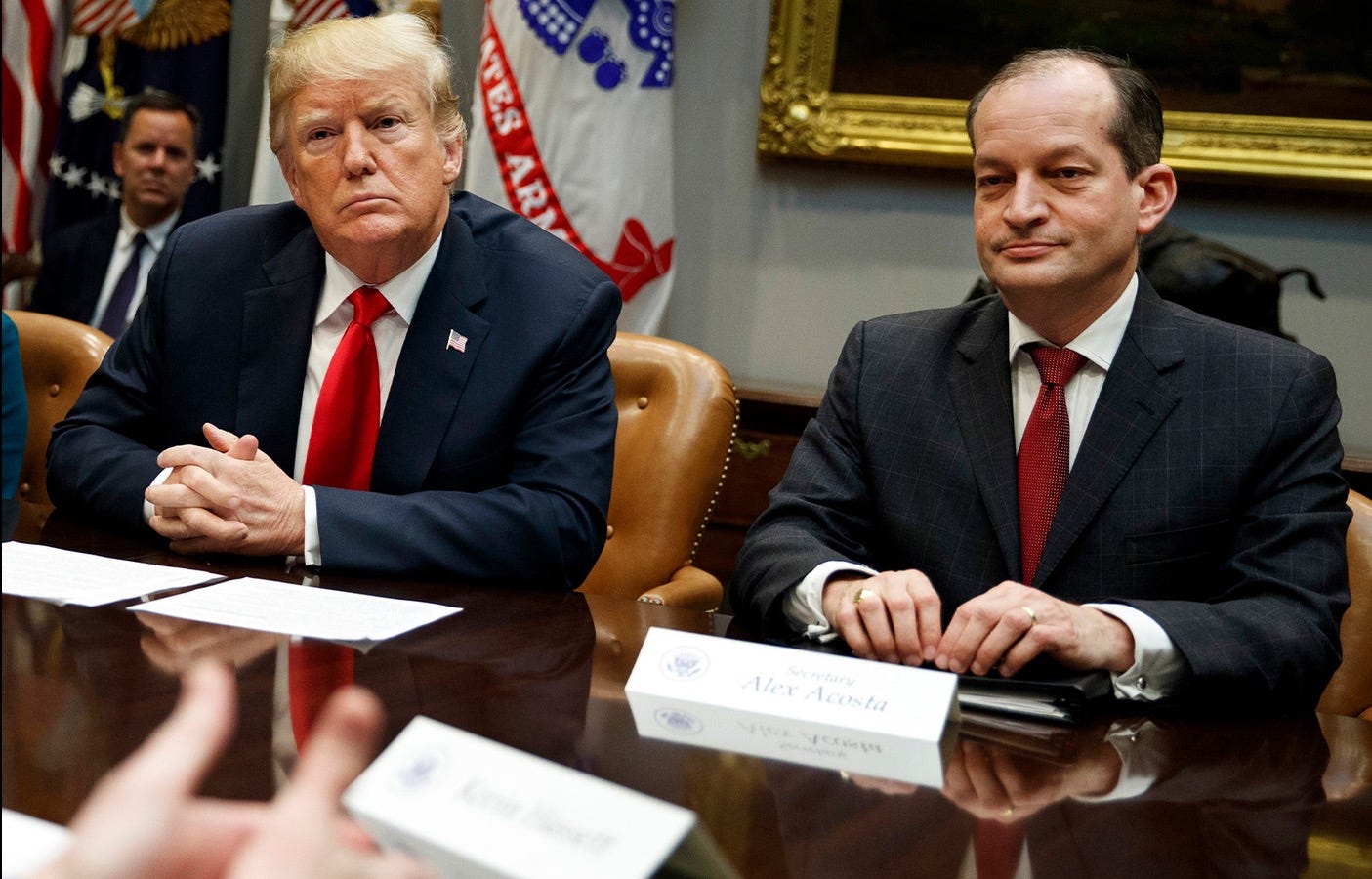The Elephant in the Room
Under oath, Acosta denied Epstein had intelligence ties—but couldn’t explain why DOJ approved the deal anyway

Alexander Acosta sat before the House Oversight Committee in September 2025 and faced the question that’s haunted the Epstein case for years: Was Jeffrey Epstein protected because of intelligence connections?
“You’ve never made a statement similar to Epstein ‘belonging to intelligence’?” the Committee asked.
“I have not,” Acosta replied.
Did anyone from the intelligence community approach him about Epstein during the investigation?
“No.”
No one from the CIA?
“No.”
State Department or NSA?
“No.”
Any foreign intelligence services like Mossad?
“No.”
But then Acosta added something revealing: “I do not know if he did or did not. If you want to know that, you need to ask the intelligence community. I have not been approached by any member of the intelligence community, and I have no knowledge of his membership in the intelligence community.”
The final question: “Do you have any reason to believe that Jeffrey Epstein was an asset for a domestic or foreign intelligence operation?”
“I have no reason to believe that,” Acosta answered. “And if there was any secure information, procedures would have been triggered that were never triggered.”
For years, reports have circulated that Acosta told the Trump transition team he backed off Epstein because he was told the financier “belonged to intelligence.” Now, under oath, Acosta flatly denies it. But his denials only sharpen the central mystery: If intelligence agencies weren’t involved, why did the Department of Justice approve such an obviously inadequate prosecution?
Acosta served as U.S. Attorney for the Southern District of Florida when his office negotiated the 2007 non-prosecution agreement that gave Epstein 18 months in county jail with work release for what prosecutors now acknowledge was interstate sex trafficking involving dozens of underage victims across multiple states.
The transcript reveals Acosta anticipated the case would go to Washington once Epstein hired high-powered attorneys Kenneth Starr and Jay Lefkowitz. “I recall very clearly going to my first assistant and saying, ‘Epstein just hired these folks. It’s going to go to Washington. So let’s give them—they want a meeting. Let’s give them the process here to try to head it off going to Washington.’”
Acosta preemptively invited Drew Oosterbaan, head of the Criminal Division’s Child Exploitation and Obscenity Section, to Florida for the defense meeting. He wanted Main Justice briefed before Epstein’s lawyers could appeal over his head.
When Epstein’s lawyers did appeal the terms, both the Criminal Division and Deputy Attorney General supported the deal. “The Criminal Division supported the office, and then the Deputy Attorney General supported the office,” Acosta testified. “They authorized us to go forward.”
This wasn’t a rogue prosecutor’s mistake. The deal had Washington’s explicit blessing at the highest levels of George W. Bush’s Department of Justice.
But why would DOJ leadership authorize deferring an obvious federal trafficking case to an unreliable state prosecution? Acosta claims his office faced jurisdictional challenges because they lacked evidence of interstate travel with victims. Yet prosecutors knew about Marie Farmer’s 1997 report of assault in New York and her sister Annie Farmer’s report of assault in New Mexico. They knew Epstein owned properties across multiple states and the Virgin Islands.
The legal debate about whether Epstein’s “purpose” in traveling created federal jurisdiction only makes sense if prosecutors were finding reasons to avoid an obvious case. As Acosta himself testified, those debates “would not have happened if we had clear evidence of interstate travel.”
Paid subscribers can access a deeper dive below



